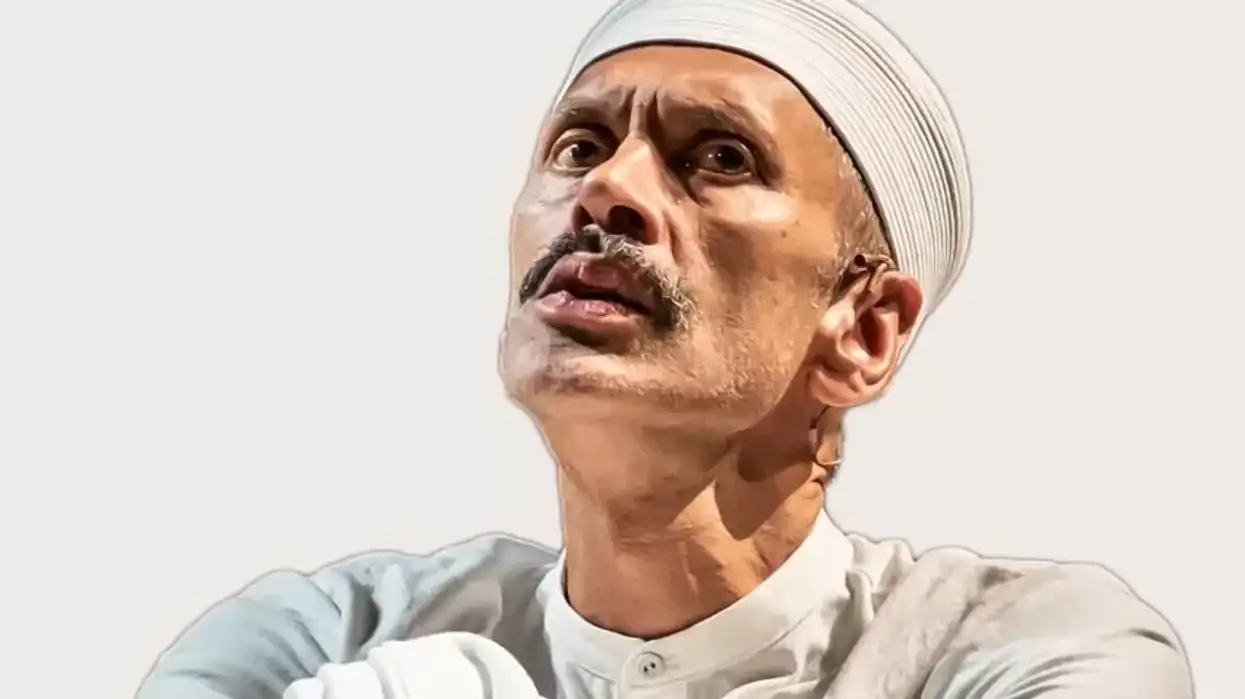AFTER the huge critical and commercial success in 2022, hit theatre play The Father and the Assassin returns for another run at the National Theatre in central London from Friday (8) until October 14.
The gripping five star rated play based on historical events revolves around the life of Nathuram Godse, across 30 years, from fighting for Indian independence and being a devout Mahatma Gandhi follower to his radicalisation and murdering the much loved leader in 1948.
Paul Bazely reprises his challenging role as Gandhi, who had successfully led the freedom struggle against the British Empire, in acclaimed writer Anupama Chandrasekhar’s celebrated work.
Eastern Eye caught up with the actor to discuss the hit play and the challenges of playing an iconic figure.
How much does the amazing success of this play mean to the cast and creative team?
The main success for me is that people who came once returned bringing family and friends with them. That’s what led to the full houses later in the run.
Why do you think The Father and the Assassin has been so successful?
The play speaks about events during India’s independence struggle, but it also speaks about polarisation and judging people who we see as ‘being on the other side’ of our cherished opinions. So, it’s completely about events happening in the world and in social media right now.
How much are you looking forward to the play returning to the London stage?
It’s a privilege to return to this important story.
For those who haven’t seen the play can you tell us a little bit about it?
The play tackles one of the formative moments in India’s history; the murder of Mahatma Gandhi. It opens with Nathuram Godse, the man who killed Gandhi and takes us on a journey through his life. It is a part-fictionalised account of this period, delving into imagined conversations and encounters, creating a vivid interpretation of India’s venerated leader and his assassin.
What has been the biggest challenge of playing Mahatma Gandhi?
The fact that he is so famous and that absolutely everyone knows roughly who he is and can picture an image of him. The challenge is to make an icon like that appear as a real human being.
What is your favourite moment in The Father and the Assassin?
When Godse and Gandhi finally confront each other at the point of a gun.
How do you feel being on stage?
It’s exciting being on one of the biggest stages in the country, the Olivier. I’ve worked at the National Theatre many times, but it never loses its magic for me.
How much does it help you as an actor being part of such a strong cast?
We only exist as performers (or human beings) in relation to others. So, it is essential.
Has all the praise this play has previously received put pressure on the team or is it motivating?
It’s motivating to make it even better.
What inspires you as an actor?
To try to stand in other people’s shoes and help people to really empathise with them.
Why should we all watch the play?
This is a funny, exciting and finally moving story played on a grand scale, which will entertain you and give you some interesting discussions to have on the way home.
The Father and the Assassin at Olivier Theatre, National Theatre, Upper Ground, London SE1 9PX from Friday (8) until Saturday October 14.
www.nationaltheatre.org.uk




